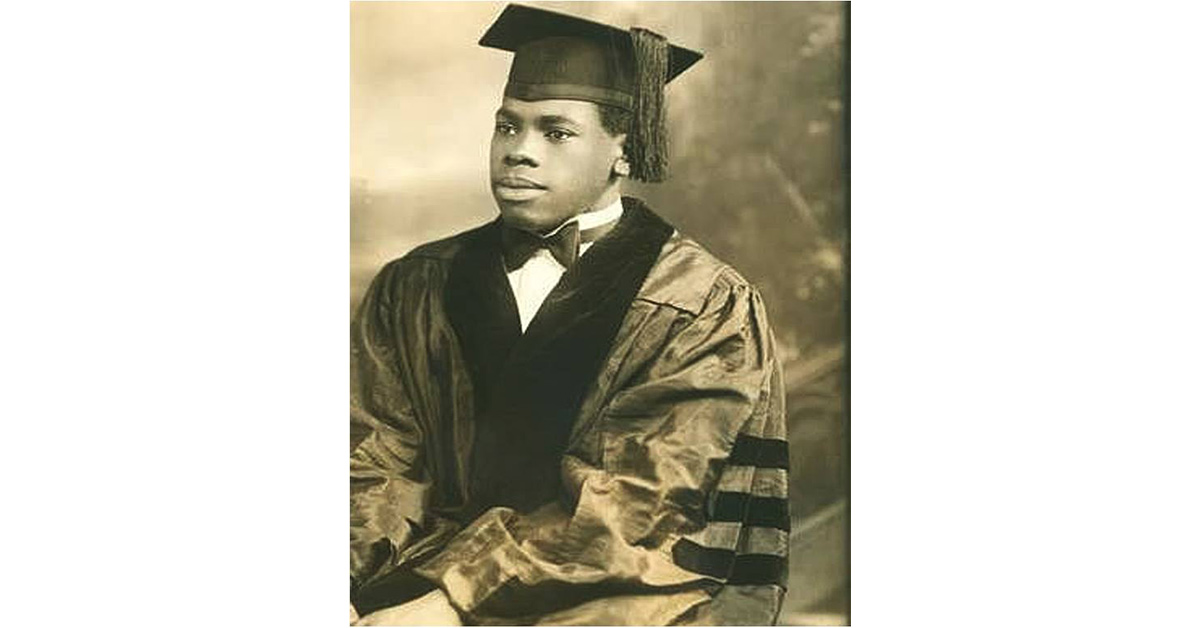|
Getting your Trinity Audio player ready...
|
Dr. Hildrus Poindexter’s name may not be widely known today, but his contributions to medicine, public health, and civil rights are nothing short of revolutionary. As one of the first African American physicians to achieve national prominence, he dedicated his career to combating racial disparities in healthcare and advancing biomedical research. Let’s explore his remarkable journey and why his story remains vital to understanding Black History in America.
Early Life and Education: Laying the Foundation
Born in 1901 in Memphis, Tennessee, Poindexter grew up in a segregated South where systemic barriers often stifled Black ambition. Yet, his intellectual curiosity and resilience propelled him forward. He earned his bachelor’s degree from Fisk University, a historically Black institution, before pursuing medicine at Meharry Medical College—one of the few schools offering medical degrees to African Americans at the time.
His education wasn’t just about personal achievement; it was a stepping stone to serve his community. Poindexter’s early career focused on addressing health inequities in Black neighborhoods, where access to quality care was scarce. This mission-driven approach would define his life’s work.
Breaking Barriers in Medicine
Poindexter’s medical career spanned decades, marked by groundbreaking achievements:
- Tropical Disease Research: He conducted critical studies on diseases like malaria and hookworm, which disproportionately affected marginalized communities. His work laid the groundwork for public health initiatives in underserved regions.
- Advocacy for Racial Equity: As a member of the National Medical Association (NMA), he fought against segregation in healthcare, pushing for equal opportunities for Black physicians.
- Mentorship and Leadership: He trained countless Black medical students and founded organizations to support minority healthcare professionals.
His legacy extends beyond the lab. Poindexter’s commitment to dismantling systemic racism in medicine inspired generations of Black doctors and researchers.
Key Contributions to Biomedical Research
Poindexter’s research addressed urgent public health challenges:
- Malaria Eradication: His studies on mosquito-borne diseases informed strategies to reduce outbreaks in Southern states.
- Nutrition and Public Health: He highlighted the link between poverty, malnutrition, and chronic illnesses, advocating for community-based health programs.
- Cancer Research: Early in his career, he contributed to understanding cancer’s impact on Black populations, a field still underrepresented today.
These efforts not only saved lives but also challenged stereotypes about Black scientists’ capabilities.
Legacy and Impact
Dr. Poindexter’s influence persists in modern medicine:
- Inspiring Future Generations: His story motivates Black students to pursue STEM careers, proving that excellence transcends racial barriers.
- Advancing Health Equity: Organizations like the NMA continue his fight for equitable healthcare access.
- Archival Preservation: His papers and writings are preserved in institutions like the National Library of Medicine, ensuring his contributions remain accessible.
Teaching, Service, and Innovation: Dr. Poindexter’s Impact on Global Health
After retiring from the Public Health Service, Dr. Poindexter returned to academia, teaching courses in laboratory diagnosis of tropical diseases, global epidemiology, and gerontology at Howard University’s medical school. His dedication to education began decades earlier, when he first joined Howard’s faculty in 1931, mentoring future scientists like Jane Hinton and Ruth Ella Moore. During World War II, he served in the Pacific as a Major in the Army Medical Corps, earning a Bronze Star for slashing malaria rates by 86% in the Solomon Islands—a feat that saved countless lives. Post-war, he resumed teaching at Howard before transitioning to the Public Health Service in 1947, where he spent 30 years advancing global health initiatives.
Dr. Poindexter’s influence extended beyond the lab. His autobiography My World of Reality (1973) reveals his commitment to education and mentorship, including his role in training future scientists like Jane Hinton and Ruth Ella Moore. The book also chronicles his military service and global health initiatives, cementing his legacy as a bridge between science and social justice67.

Why His Story Matters Today
In an era where racial disparities in healthcare persist, Poindexter’s life offers timeless lessons:
- The Power of Representation: Seeing Black scientists in leadership roles fosters trust and innovation.
- Community-Centric Care: His focus on addressing systemic issues over individual symptoms remains a blueprint for public health.
- Resilience in the Face of Adversity: Despite facing racism at every turn, he never wavered in his mission.
How to Honor His Legacy
- Educate Yourself: Explore resources like the Guide to Library and Archival Collections of African Americans in Medicine to learn more about Black medical pioneers.
- Support Equity Initiatives: Advocate for policies that address healthcare disparities.
- Share His Story: Amplify narratives of Black scientists to inspire future leaders.
Conclusion
Dr. Hildrus Augustus Poindexter’s life was a testament to courage and intellect. By documenting his achievements, we honor not just his legacy but the ongoing struggle for justice in medicine. As we celebrate Black History, let’s ensure his story—and those of countless unsung heroes—remains at the forefront of our collective memory.


